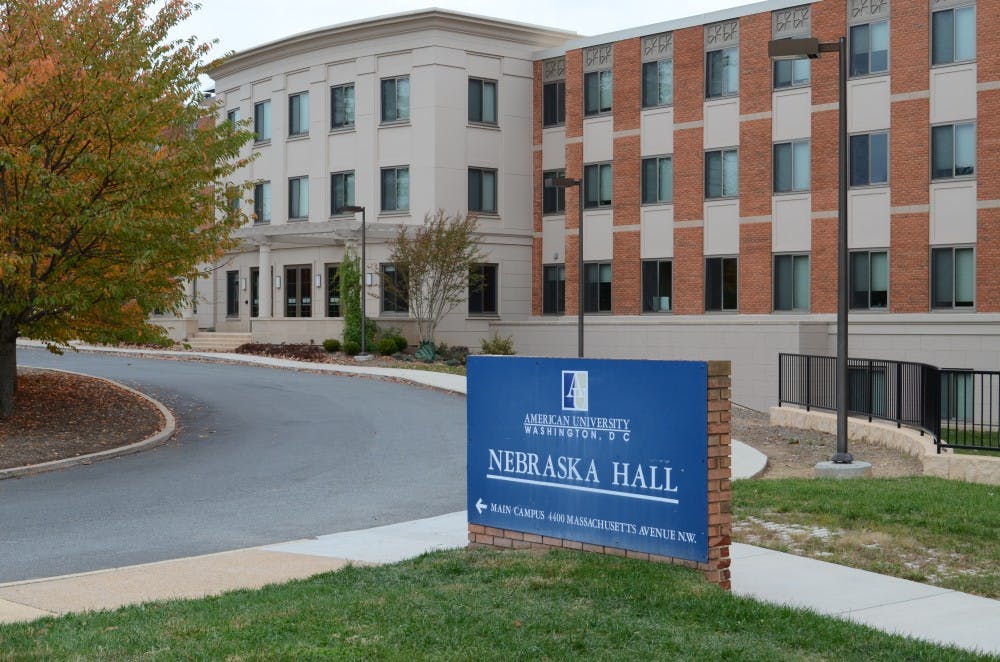Editor’s note: This article originally appeared on theeaglecoronavirusproject.com, a separate website created by Eagle staff at the onset of the coronavirus pandemic in spring 2020. Articles from that website have been migrated to The Eagle’s main site and backdated with the dates they were originally published in order to allow readers to access them more easily.
When American University freshman Nick Buckley returned to campus in January, he had no idea he’d contracted the coronavirus until his test from AU’s Student Health Center came back positive three days later.
The day after receiving his test results, Buckley moved into a suite in Federal Hall to avoid passing the virus to his roommate. He was told he was the first student to use the University’s isolation housing in the spring semester and while he appreciated the University’s isolation program, he said that AU’s lack of available resources was a sore spot.
“I was told to DoorDash anything that I would need or to do a grocery order,” Buckley said. “I’ve seen what other schools have done for people that have had to isolate, so it was kind of surprising to me, but I also understand that I was the one that got COVID.”
Buckley’s one of approximately 240 students living in emergency housing during the spring semester. The program houses students on campus or in the Frequency Apartments in Tenleytown.
According to Georgetown University’s website, staff delivers supplies and food as needed to students in isolation and quarantine. George Washington University provides similar services, as well as a notification to professors that students may miss class, said its website. GW also provides isolation housing to off-campus students, a service that AU does not provide.
When Buckley entered Federal Hall, he received a thermometer, pulse oximeter, two bottles of water, two rolls of toilet paper and bedding from the University, he said. His parents, who live two hours away from D.C., drove down to supply him with microwaveable food. Buckley said he also received food from the D.C. government and his teammates on the swim team.
Dr. David Reitman, the Student Health Center’s medical director, said students are provided with resources to access food. Once students come to campus for the Mid-Semester Residential Experience in early March, those who isolate on campus will receive prepared meals from the University dining hall, Reitman said.
Buckley’s only symptoms were the occasional headache and a dulled sense of taste and smell. The most challenging effect of the illness was complete isolation from his friends and teammates for 10 days, he said.
“The weeks were definitely better than the weekends because there’s a whole lot of extra time to think on the weekends but when you’re in classes it keeps you busy,” Buckley said.
Reitman said that students are offered access to mental health professionals during their stay.
Since Buckley left Federal Hall, the University has reported two other on-campus cases among the 72 total COVID-19 cases for the spring semester. Most were concentrated in the off-campus community.
Alejandro Vasquez, a freshman in the School of Communication, credits the low on-campus positivity rate to a shared sense of responsibility among students.
“The majority of people have common sense and aren’t partying,” he said.
Vasquez, who was housing insecure, moved into the Frequency Apartments in October under the University’s emergency housing program. Since then he’s felt largely on his own without a U-Pass, meal plan or much direction from the University. He spends his days attending virtual classes, working in the Center for Community Engagement and Service and socializing with a few friends.
Vasquez said that he formed a bubble with three friends early in the year so that he could safely socialize. Outside of his group, Vasquez relies on social media to connect with students who share his interests.
Since the spring semester began, Vasquez said that he’s felt unsettled to observe an increased presence of AUPD officers, who he said have stopped him multiple times while skateboarding on East Campus.
“They’ve made me, like, empty my pockets,” Vasquez said. “They always ask to see my AU ID plus my driver’s license.”
In an email to The Eagle, AU spokesperson Stacie Burgess said AUPD confronts community members if there’s “reasonable concern” that they are violating University or D.C. regulations.
“AUPD advises the person of the policy or law and asks for their cooperation, which will include a request to identify themselves by producing an ID,” Burgess wrote. “This particular type of routine contact with a member of law enforcement is intended to be the briefest of interactions in response to a legitimate concern about campus safety.”
Some freshmen, like Whitney Powers in the School of Public Affairs, have had more positive experiences while living on campus. Powers decided to move into Nebraska Hall in the spring after struggling to find roommates for an apartment in the D.C. area.
She is especially looking forward to her only in-person class of the semester, Changemakers: Justice Reform, which is set to begin in late March.
“It’s been really great so far,” Powers said. “I like being close to campus, and I feel like I’ve gotten to know enough people to where it isn’t lonely here.”
Similar to Vasquez, she initially met people through social media, including a GroupMe with close to 100 on-campus students.
Powers said she is excited for more students to come to campus for the Mid-Semester Residential Experience, as she knows several of the incoming students. She initially felt wary when she heard the program would bring up to 1,250 students to campus, but felt reassured after less than half of the spots filled.
“I think it will be a positive experience … and make campus more lively because it’s so dead right now,” Powers said.





